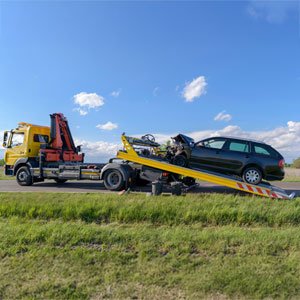Florida Supreme Court Rules on No-Fault Fee Schedules
Car AccidentsOn January 26, 2017, the Florida Supreme Court issued a written opinion in the case of Allstate Insurance Company v. Orthopedic Specialists, SC15-2298 (Fla. 2017) regarding Medicare fee schedules under Florida no-fault insurance.
Statute Amended in 2009
Prior to the amendment of section 627.736, Fla. Stat. in 2009, medical providers could charge anything that was “reasonable” and “customary” in their locality and no-fault insurance would pay 80% of the bill (leaving the patient with a 20% balance). The change in the law sought to limit what a medical provider could charge to 80% of 200% of what Medicare would pay for the very same treatment rather than rely on what is “reasonable” and “customary.” Under the new law, if Medicare will pay $100 for a particular procedure, then Florida no-fault insurance will pay $160 for that very same medical care just because it was the result of a car accident (keep in mind that this is regardless of who is at fault for causing the accident).
Medical Groups Challenged The Fee Schedules
Thereafter, medical groups such as Orthopedic Specialists brought a challenge to the law by attacking the policy language of Allstate’s automobile insurance policy in that the policy language allegedly did not provide sufficient notice to the medical provider that the statutory fee schedules were going to be used to determine reimbursements for medical care. As such, the medical group claimed that the insurance policy was ambiguous as to whether the Allstate would elect to actually use the fee schedules or whether Allstate had merely reserved the right to elect to do so.
Allstate’s policy handled this issue by having its general policy language (cited below) modified by an endorsement (also cited below). It read:
Eighty percent of all reasonable expenses for medically necessary medical, surgical, X-ray, dental, and rehabilitative services, including prosthetic devices, and medically necessary ambulance, hospital, and nursing services.
[Endorsement] Any amounts payable under this coverage shall be subject to any and all limitations, authorized by section 627.736, or any other provisions of the Florida Motor Vehicle No-Fault Law, as enacted, amended or otherwise continued in the law, including, but not limited to, all fee schedules.
The Court said that “broken down to its most simple form, Allstate’s policy says that “any amounts payable under this coverage shall be subject to any and all limitations” in the PIP statute.
General Principles of Contract Construction
It is well established legal precedent in Florida that “where the language in an insurance contract is plain and unambiguous, a court must interpret the policy in accordance with the plain meaning so as to give effect to the policy as written.” (Washington Nat. Ins. Corp. v. Ruderman, 117 So. 3d 943 (Fla. 2013)).
Likewise, an insurance policy is only considered ambiguous under Florida law “if the language is susceptible to more than one reasonable interpretation, one providing coverage and the other limiting coverage.” (Travelers Indem. Co. v. PCR, Inc., 889 So. 2d 779 (Fla. 2004). If the language of an insurance company is ambiguous, then “policy exclusions are construed against the drafter and in favor of the insured.” (Auto-Owners Ins. Co. v. Anderson, 756 So. 2d 29 (Fla. 2000).
Legal Result And Analysis
As a result, the legal result in this case was that Allstate’s policy was upheld and the PIP/No-fault fee schedules were imposed. This result is not unexpected considering the purpose of the statute, which was clearly to place a ceiling on what medical providers can charge a patient after a car accident in Florida. To find otherwise, would be contrary to the public policy announced by the statute and would have required insurance companies to place even more obvious language in their automobile policies that would announce their intent to rely on the statutory language.
Contact Us If You Have A Car Accident Case In Florida
If you or someone you know has been injured in a car accident in Florida, please contact the Lakeland personal injury law firm of Russo Law to set up a free consultation where you can discuss your case with an attorney.


